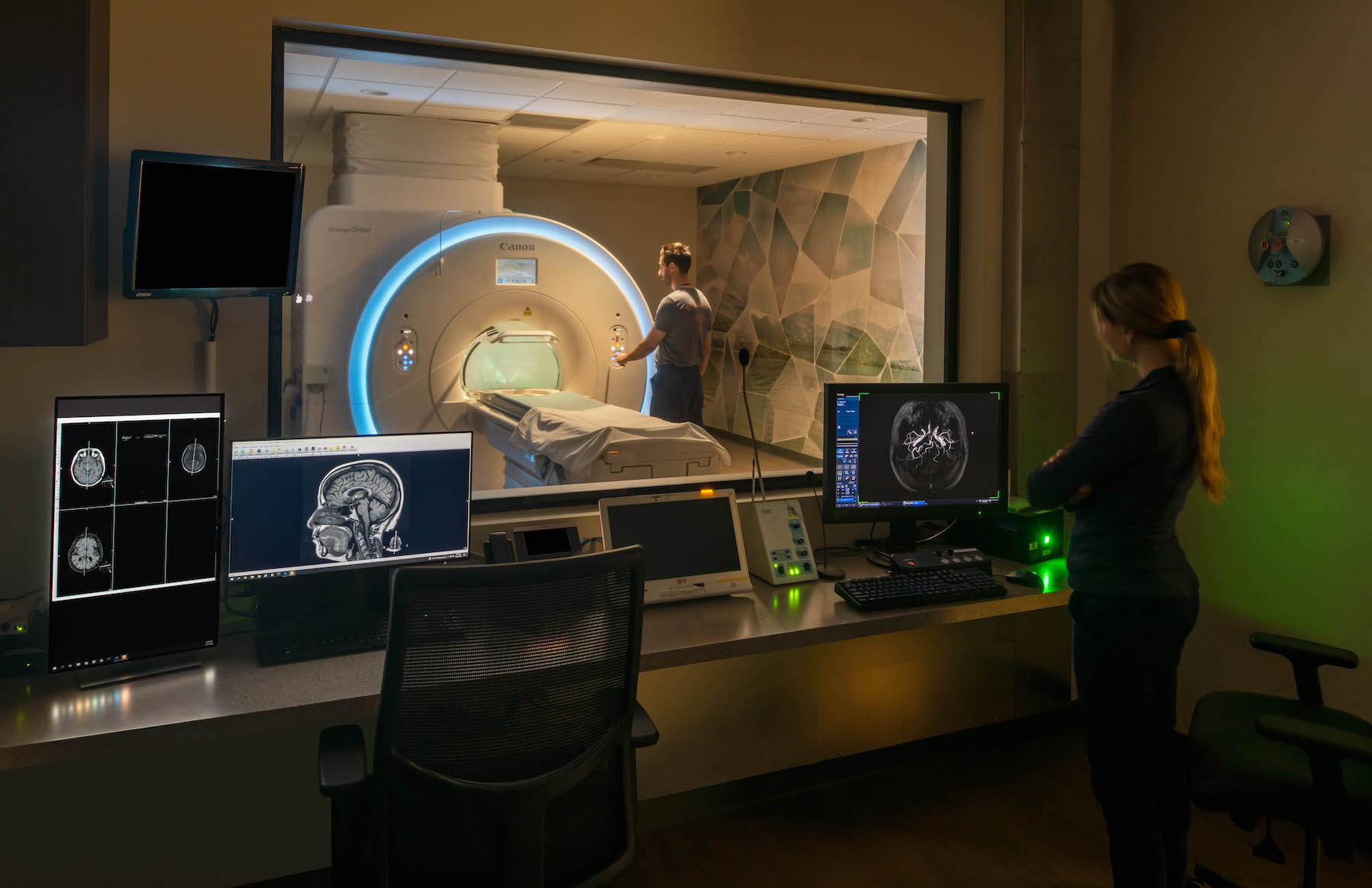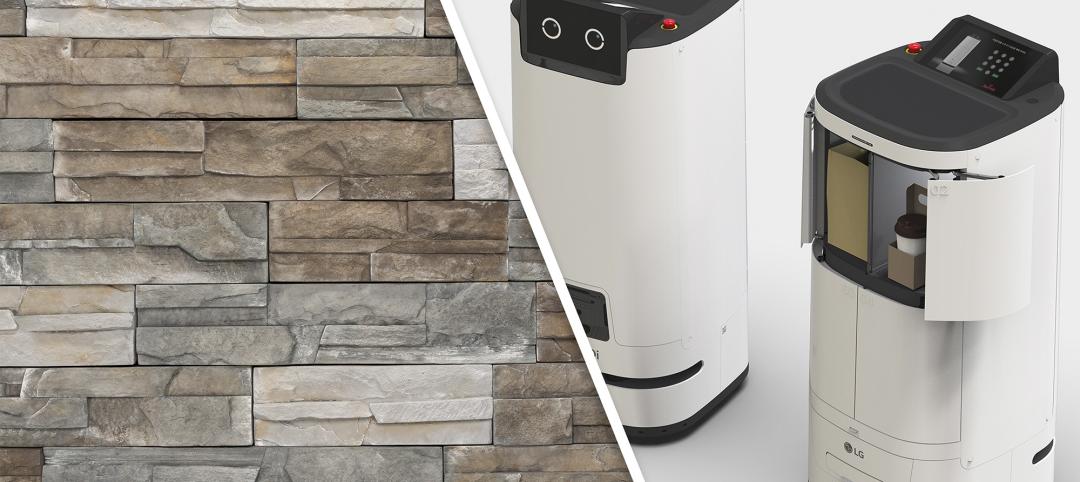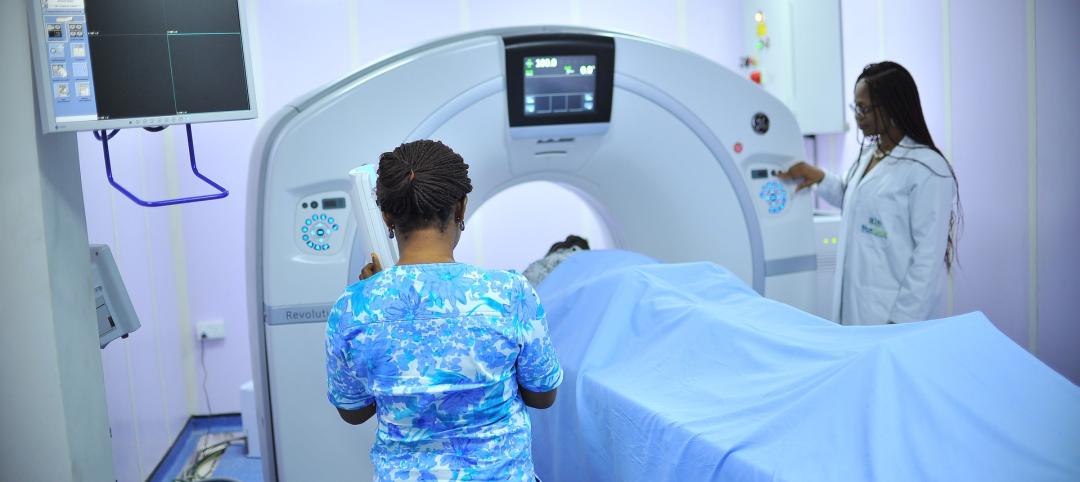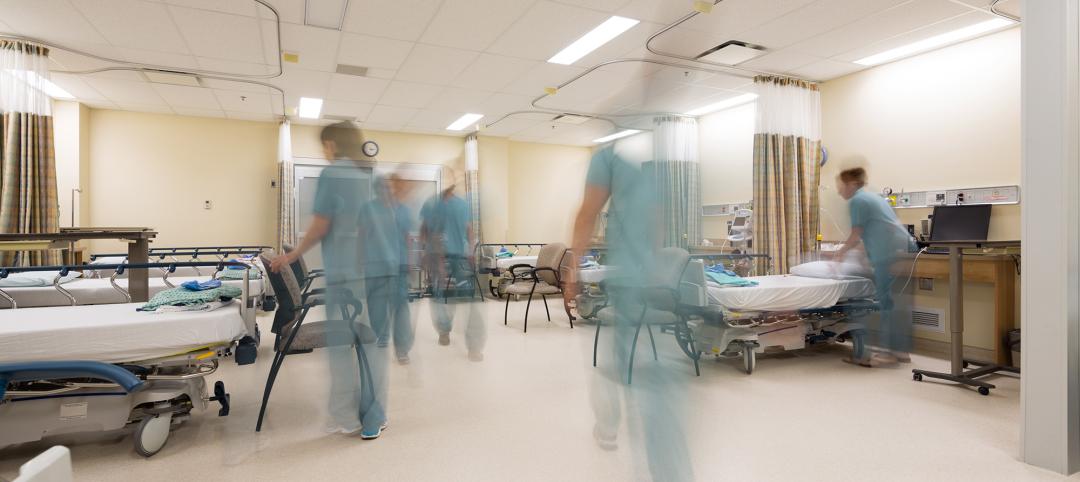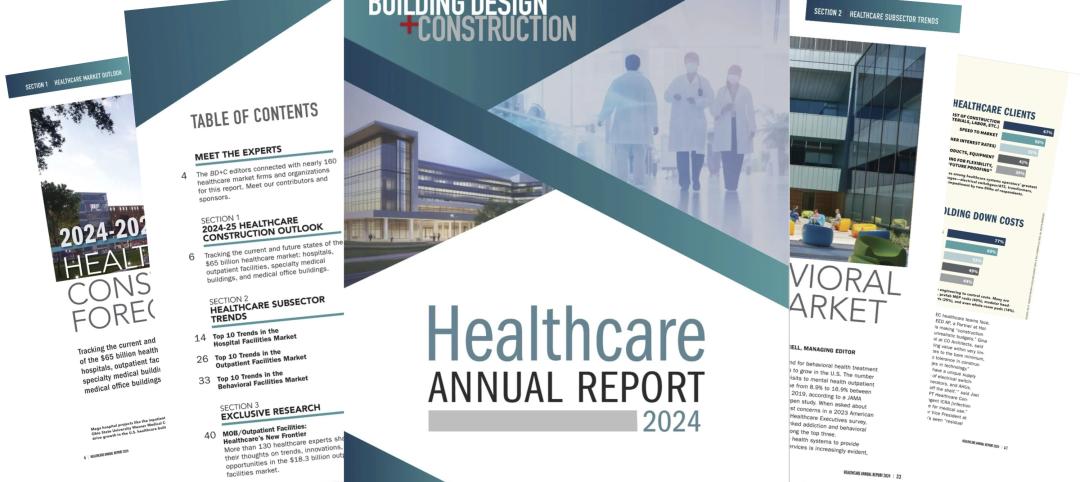Last October, the Edward-Elmhurst Health system opened a 36,100-sf multi-specialty clinic in the Chicago suburb of Woodridge, Ill., on what had been an undeveloped intersection of two busy roads that sees an estimated 55,000 cars per day. The leased building—whose lot was zoned originally for a Walgreens—is near a senior living facility, a gas station across the street, and a forest preserve.
The general contractor Ryan Companies, which owns this building and constructed it from designs by Jensen & Halsted, has benefited from the ongoing trend among healthcare systems wanting to place hospitals, clinics, and medical offices within office-retail corridors that, despite rising vacancy rates during the coronavirus pandemic, still promise exposure to ample vehicular and foot traffic.
The point of such placements, explains Curt Pascoe, Ryan Companies’ Director of Real Estate Development in Chicago, is to make healthcare “more accessible and visible in a highly competitive marketplace.” He describes this as the “retailization” of healthcare that enhances customer convenience. And while this trend has been evident for a while, Pascoe expects it to accelerate as the healthcare sector continues to consolidate with an eye toward bringing care closer to where patients live.
The Edward-Elmhurst Health Center is the second facility that Ryan has built in partnership with that health system, which recently merged with NorthShore University HealthSystem. The Woodridge center includes a walk-in clinic, and services for behavioral health, physical therapy, laboratory, and diagnostic imaging. It also has offices for primary care physicians and specialists.
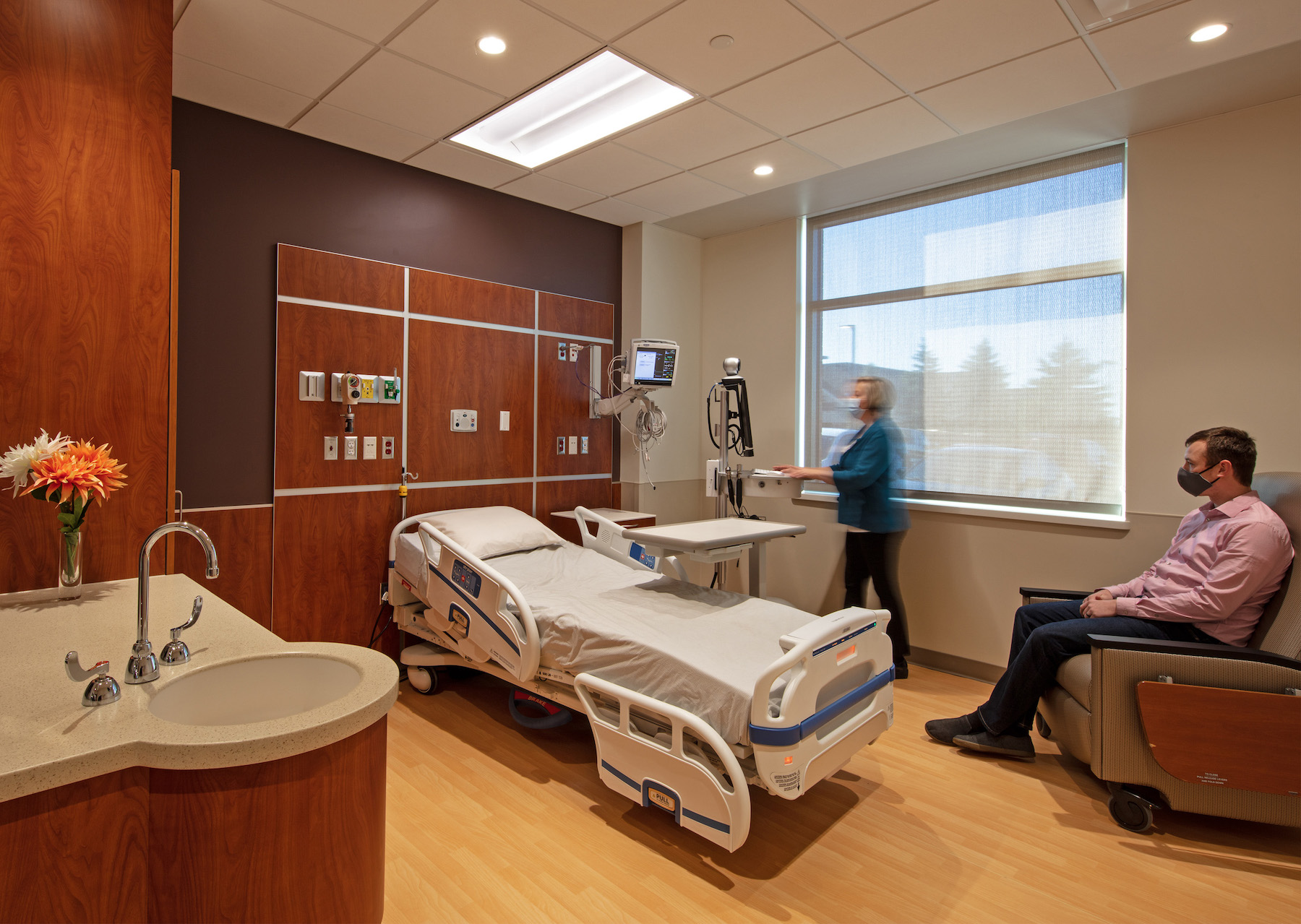
Ryan Companies, which is based in Minnesota, has been engaged by several Midwestern healthcare clients on similar projects that it has recently completed or has in the works. They include:
• A core-and-shell reconstruction of a two-story, 50,000-sf building as part of the redevelopment of the Oakmont Point office park in Westmont, Ill. Compass Health Center, a behavioral health provider, leased the entire building, which opened last August as the second anchor tenant in this 18-acre complex. Designed by Chicago-based Wright Heerema Architects, the building features a 15-foot clear height with floor-to-ceiling windows that overlook a four-acre pond. The center provides psychiatric care for children and adults. Pascoe says this building is situated off a major highway, and the surrounding office park includes several other medical-related facilities.
• Last December, on Port Washington Road in Mequon, Wis., a Milwaukee suburb, Ryan completed construction of the Froedtert & Medical College of Wisconsin Community Hospital, a 17,000-sf microhospital designed by Eppstein Uhen Architects with eight in-patient beds and seven emergency department beds. This microhospital is across the street from the 89,300-sf Froedtert Mequon Health Center, which Ryan developed in 2017.
Mequon is on Lake Michigan’s western shore, where there has been considerable commercial and residential development along Interstate 43, with more planned. To overcome the challenge of finding a suitable site in this area, Ryan Companies combined two former residential parcels, secured zoning changes, and obtained multiple easements. The microhospital is scheduled to open during the first half of this year.
“Our development team hit it out of the park with site selection and meeting with neighbors concerned about impact, while navigating complex municipal permitting,” says Pascoe. Ryan Companies had built a similar 18,100-sf microhospital in Pewaukee, Wis., for this healthcare system, which opened in December 2020.
Pascoe couldn’t discuss other healthcare facilities near retail-office corridors that his firm is currently involved with, except to note that a lot of these so-called off-campus facilities deliver care at lower costs, and can be built less expensively. (He declined to provide construction costs for the abovementioned projects.) While all of Ryan’s recent healthcare projects have been new builds, Pascoe acknowledges the opportunities that adaptive reuse might present to healthcare clients in the future.
Related Stories
Products and Materials | Jul 31, 2024
Top building products for July 2024
BD+C Editors break down July's top 15 building products, from Façades by Design to Schweiss Doors's Strap Latch bifold door.
Smart Buildings | Jul 25, 2024
A Swiss startup devises an intelligent photovoltaic façade that tracks and moves with the sun
Zurich Soft Robotics says Solskin can reduce building energy consumption by up to 80% while producing up to 40% more electricity than comparable façade systems.
Great Solutions | Jul 23, 2024
41 Great Solutions for architects, engineers, and contractors
AI ChatBots, ambient computing, floating MRIs, low-carbon cement, sunshine on demand, next-generation top-down construction. These and 35 other innovations make up our 2024 Great Solutions Report, which highlights fresh ideas and innovations from leading architecture, engineering, and construction firms.
Healthcare Facilities | Jul 22, 2024
5 healthcare building sector trends for 2024-2025
Interactive patient care systems and trauma-informed design are among two emerging trends in the U.S. healthcare building sector, according to BD+C's 2024 Healthcare Annual Report (free download; short registration required).
Healthcare Facilities | Jul 18, 2024
Why decarbonizing hospitals smartly is better than electrification for healthcare design
Driven by new laws, regulations, tariffs, ESG goals, and thought leaders in the industry itself, healthcare institutions are embracing decarbonization to meet 2050 goals for emissions reductions.
Healthcare Facilities | Jul 16, 2024
Watch on-demand: Key Trends in the Healthcare Facilities Market for 2024-2025
Join the Building Design+Construction editorial team for this on-demand webinar on key trends, innovations, and opportunities in the $65 billion U.S. healthcare buildings market. A panel of healthcare design and construction experts present their latest projects, trends, innovations, opportunities, and data/research on key healthcare facilities sub-sectors. A 2024-2025 U.S. healthcare facilities market outlook is also presented.
Healthcare Facilities | Jul 11, 2024
New download: BD+C's 2024 Healthcare Annual Report
Welcome to Building Design+Construction’s 2024 Healthcare Annual Report. This free 66-page special report is our first-ever “state of the state” update on the $65 billion healthcare construction sector.
Healthcare Facilities | Jun 18, 2024
A healthcare simulation technology consultant can save time, money, and headaches
As the demand for skilled healthcare professionals continues to rise, healthcare simulation is playing an increasingly vital role in the skill development, compliance, and continuing education of the clinical workforce.
Mass Timber | Jun 17, 2024
British Columbia hospital features mass timber community hall
The Cowichan District Hospital Replacement Project in Duncan, British Columbia, features an expansive community hall featuring mass timber construction. The hall, designed to promote social interaction and connection to give patients, families, and staff a warm and welcoming environment, connects a Diagnostic and Treatment (“D&T”) Block and Inpatient Tower.
Healthcare Facilities | Jun 13, 2024
Top 10 trends in the hospital facilities market
BD+C evaluated more than a dozen of the nation's most prominent hospital construction projects to identify trends that are driving hospital design and construction in the $67 billion healthcare sector. Here’s what we found.


